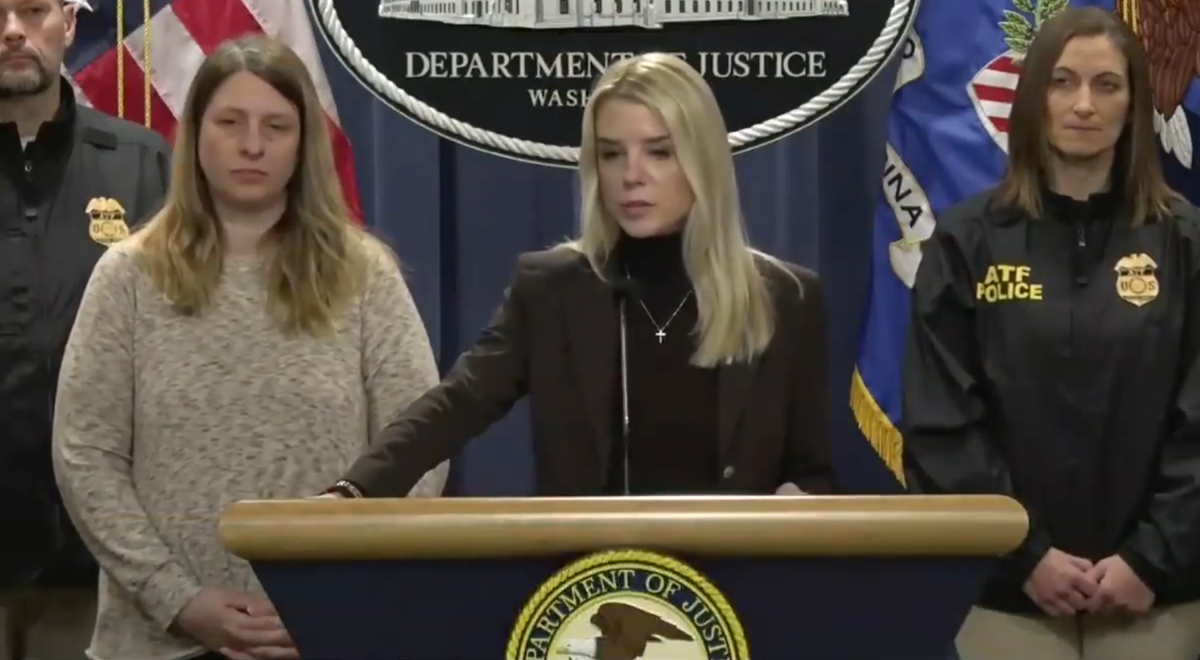DOJ vs. New York: A Legal Showdown Over Sanctuary Policies and the Green Light Law
The U.S. Department of Justice (DOJ), under the direction of Attorney General Pam Bondi, has initiated a legal battle against the state of New York, thrusting the contentious issue of sanctuary policies and the delicate balance between state and federal authority back into the national spotlight. The lawsuit, naming key New York officials including Governor Kathy Hochul, Attorney General Letitia James, and Department of Motor Vehicles Commissioner Mark Schroeder, centers on New York's "Green Light Law" and its broader sanctuary stance, arguing that these policies undermine national security and obstruct federal immigration enforcement. This legal action marks a significant escalation in the ongoing debate over immigration, state sovereignty, and the role of sanctuary jurisdictions in the United States.
The Green Light Law: A Flashpoint of Controversy
At the heart of the DOJ's lawsuit lies New York's Green Light Law, enacted in 2019. This law allows undocumented immigrants to apply for and obtain driver's licenses without providing proof of legal residency. Proponents of the law argue that it enhances road safety by ensuring that more drivers are licensed and insured, thereby reducing the number of uninsured drivers on the road and promoting responsible driving behavior. They also emphasize that the law benefits the state's economy by increasing revenue from license fees and insurance premiums.
However, the DOJ contends that the Green Light Law, in conjunction with New York's broader sanctuary policies, creates a significant obstacle to federal immigration enforcement. The DOJ argues that the law provides a safe haven for undocumented immigrants, shielding them from detection and deportation. Furthermore, the DOJ specifically challenges provisions of the law that require notification to individuals when their information is requested by federal immigration authorities, describing this as a "tip-off" mechanism that hampers enforcement efforts.
The DOJ's Argument: National Security and Public Safety
The DOJ's lawsuit rests on the premise that New York's sanctuary policies, including the Green Light Law, prioritize the interests of "illegal aliens over American citizens," as Attorney General Bondi stated during a recent press conference. The DOJ argues that these policies undermine national security by making it more difficult for federal immigration authorities to identify and apprehend individuals who may pose a threat to public safety.
The DOJ also contends that New York's policies obstruct federal immigration enforcement by limiting cooperation between state and federal agencies. The lawsuit specifically targets provisions that restrict the sharing of information between state and federal authorities, arguing that these restrictions hinder the ability of federal agents to track down and deport individuals who have committed crimes or violated immigration laws.
Attorney General Bondi has emphasized that this lawsuit represents a new approach at the DOJ, signaling a tougher stance on states with sanctuary policies. The DOJ's action underscores the federal government's determination to enforce federal immigration laws uniformly across all states, regardless of their local policies.
New York's Defense: Public Safety and Community Trust
New York officials, including Governor Hochul and Attorney General James, have consistently defended the state's sanctuary policies, arguing that they are essential for public safety and community trust. They maintain that these policies are not intended to obstruct federal law enforcement but rather to encourage cooperation between law enforcement and immigrant communities.
New York officials argue that sanctuary policies promote public safety by ensuring that immigrants are not afraid to report crimes or cooperate with law enforcement, regardless of their immigration status. They also contend that these policies foster trust between law enforcement and immigrant communities, making it easier for law enforcement to gather information and solve crimes.
Regarding the Green Light Law, New York officials argue that it enhances road safety by ensuring that more drivers are licensed and insured. They also emphasize that the law benefits the state's economy by increasing revenue from license fees and insurance premiums. They deny that the law is intended to shield undocumented immigrants from federal law enforcement, arguing that it is simply a matter of public safety and economic pragmatism.
The Broader Context: Federalism and State Sovereignty
The legal battle between the DOJ and New York is not simply a dispute over immigration policy; it is also a fundamental clash over federalism and state sovereignty. The U.S. Constitution establishes a system of federalism, dividing powers between the federal government and the state governments. However, the precise boundaries of these powers are often subject to interpretation and debate.
The DOJ's lawsuit against New York raises important questions about the extent to which the federal government can compel states to enforce federal laws. The DOJ argues that the Supremacy Clause of the Constitution gives the federal government the authority to preempt state laws that conflict with federal law. However, New York argues that the Tenth Amendment to the Constitution reserves certain powers to the states, including the power to regulate matters of local concern, such as driver's licensing and law enforcement cooperation.
The outcome of this legal battle could have significant implications for the balance of power between the federal government and the states, potentially influencing how sanctuary policies are crafted or defended in other states.
Precedents and Future Implications
The DOJ's lawsuit against New York is not an isolated incident. The DOJ has previously filed similar lawsuits against other states, such as Illinois, highlighting a pattern of targeting jurisdictions that limit federal immigration enforcement capabilities. These lawsuits have raised similar legal and constitutional questions, and their outcomes could have significant implications for the future of sanctuary policies in the United States.
The legal battle between the DOJ and New York is likely to be a protracted and contentious one, potentially reaching the Supreme Court. The outcome of this case could set important precedents for future legal confrontations between state and federal authorities on immigration issues. It could also influence how sanctuary cities and states operate in the context of federal immigration enforcement.
As this case unfolds, it will be closely watched by both proponents and opponents of sanctuary policies, potentially shaping the national debate over immigration and the role of state and local governments in enforcing federal laws. The case serves as a critical test of the boundaries of federal power and the limits of state sovereignty in the realm of immigration policy.
🚨 Pam Bondi announces that charges have been filed against the state of New York, Gov. Kathy Hochul and AG Letitia James for failing to enforce immigration law:
— Greg Price (@greg_price11) February 12, 2025
“NY has chosen to prioritize illegal aliens over American citizens. It stops today.”
pic.twitter.com/mqzU76rZoQ
The Potential Outcomes: A Range of Possibilities
The legal battle between the DOJ and New York could have a variety of potential outcomes, each with significant implications for immigration policy and the balance of power between the federal government and the states.
- DOJ Victory: If the DOJ prevails in its lawsuit, it could set a precedent that allows the federal government to preempt state laws that hinder federal immigration enforcement. This could lead to the dismantling of sanctuary policies in New York and other states, making it easier for federal agents to identify and deport undocumented immigrants.
- New York Victory: If New York prevails in its defense, it could strengthen the legal foundation for sanctuary policies, affirming the right of states to limit cooperation with federal immigration authorities. This could encourage other states to adopt similar policies, creating a patchwork of immigration enforcement across the country.
- Compromise: It is also possible that the court could reach a compromise, finding that certain aspects of New York's policies are permissible while others are not. This could lead to a narrowing of sanctuary policies, requiring states to cooperate with federal authorities in certain circumstances while still protecting the rights of undocumented immigrants.
The Long-Term Impact: Shaping the Immigration Landscape
Regardless of the specific outcome of the DOJ's lawsuit against New York, the case is likely to have a lasting impact on the immigration landscape in the United States. It has already sparked a national debate over the role of sanctuary policies, the balance of power between the federal government and the states, and the rights of undocumented immigrants.
The case serves as a reminder of the deep divisions that exist in the United States over immigration policy. It also highlights the challenges of balancing the need for national security with the protection of individual rights and the promotion of community trust. As the case unfolds, it will continue to shape the national conversation about immigration and the future of sanctuary policies in the United States. The implications extend far beyond the specific legal arguments, touching upon fundamental questions of identity, belonging, and the very definition of American society. The final resolution, whenever it arrives, will undoubtedly leave a lasting mark on the nation's immigration policies and the relationship between the federal government and its constituent states. The ongoing scrutiny and public discourse surrounding this case ensure that the complexities of immigration policy will remain at the forefront of the American consciousness for years to come.




